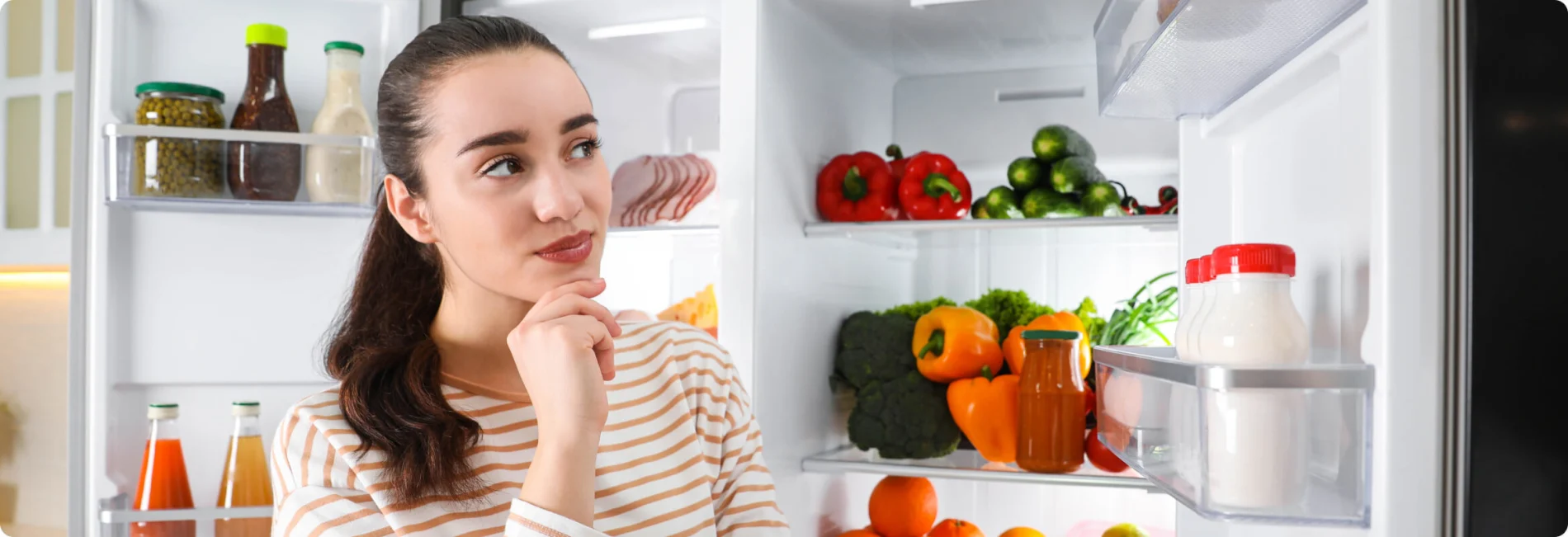
What is diet culture and how can you stop the cycle
Santé Physique · 8 sept. 2022
In a nutshell, diet culture is the idea that your physical appearance is the most important thing about you, and that being thin is the most important goal.
Diet culture is a multifaceted issue. It shows up in many different aspects of our society, and is amplified by magazines, film, and social media. It can be as obvious as an advertisement for a weight-loss program, or as subtle as a joke about a character’s body in a TV show. If you’ve ever wished you could weigh less, felt guilty for eating a certain food, or made assumptions about another person based on their physical appearance, you’ve encountered diet culture.
Diet culture can look like:
- Thinking of foods in terms of good or bad
- Feeling guilt or shame around your food choices or eating habits
- Feeling the need to burn calories to “earn” certain foods
- Deciding if a day was “good” or “bad” based on what you ate or how much you exercised
- Feeling like you can’t wear certain clothes or do certain activities because of your weight
- Frequently comparing your body to others’
It’s no surprise that many of these behaviors are also associated with disordered eating.
Diet culture ignores the many social, cultural, and emotional aspects of food and eating, instead of telling us that food is fuel and nothing more. It tries to tell us that a person’s weight is solely determined by the food they eat and how much they exercise. By extension, diet culture tells us that thinness is an indication of discipline, and even virtue, while fatness indicates a lack of self-control.
How can you help to stop the diet culture cycle?
Diet culture is deeply ingrained into many areas of our lives, so it’s sometimes hard to notice. To help move past diet culture, we can all work to recognize when we might be unconsciously participating in it, and then make changes.
Be aware of the language you use around food and eating
Calling foods “healthy” or “unhealthy” can seem innocent enough, but it can actually be harmful to assign values like these to foods. When we decide that some foods are inherently healthy and others inherently unhealthy, we reinforce the idea that we should feel guilty or bad for eating certain foods.
In fact, many ideas about the relative healthiness of foods are not rooted in total nutritional value, but in things like the amount of calories that a food contains. By this logic, foods are labeled “healthy” not because they nourish your body, but because they are perceived as foods that can make or keep you thin.
There are many variations of this type of language. You’ve probably seen some of the following:
- Good or bad
- Fattening or slimming
- Guilty pleasures or guilt-free foods
- Clean, detoxifying
It’s important to remember that describing any individual food as healthy or unhealthy is inaccurate. No one food by itself is healthy or unhealthy – all foods can fit within a healthy diet that incorporates variety, balance and flexibility. Unless you have a specific allergy or sensitivity, it’s not sustainable to restrict yourself from enjoying your favourite foods in moderation.
Move past fat shaming
Diet culture teaches us that being thin is the ultimate goal. If being thin is good, then being fat must somehow be bad. Many of us are taught a negative view of fatness from a very young age – whether it’s from fat shaming in movies and TV, or from hearing our own family members criticize their bodies.
One way to stop fat shaming is to learn about the wide range of factors that can affect a person’s weight. There are many factors outside of our control that can influence weight. These include:
- Hormones
- Stress levels
- Age
- Genetics
- Medications
Caloric intake is only a piece of the puzzle. Two individuals can follow the same diet and maintain very different weights and body types.
Weight by itself is not a very good indicator of overall health – factors like blood pressure, cholesterol, bone density, and even body fat percentage can be difficult to gauge based on physical appearance – or Body Mass Index – alone.[3]
Far more dangerous than being fat are the effects of fat shaming: social stigma, isolation, and weight bias.[4]
Research indicates that weight bias against patients can lead to lower quality medical care, and worse health outcomes overall – when fat shaming seeps into healthcare, health professionals may wrongly assume that a patient’s health concerns must be tied to their weight.[1] Some may recommend weight loss before adequately ruling out other causes of illness, lengthening the time it can take that patient to receive the treatment they actually need. Fat patients are more likely to put off going to the doctor for fear of being judged or stigmatized.[2]
Fat shaming affects everyone. When we value one body type over another, it can lead to a cycle of anxiety, guilt, and shame around our bodies and the food we eat.
Build a more positive relationship with food and your body
This is easier said than done, but there are small things that you can practice each day to overcome the lessons of diet culture. For example:
- Emphasize the social aspects of eating, like conversation around a meal
- Prepare a meal with family
- Try out a new restaurant with a friend
- Slow down and focus on your meals rather than eating while doing something else
- Make room for the foods you love – avoid restricting and aim for balance
- Move your body – focus on what your body can do and activities you enjoy doing
- Avoid weighing yourself and obsessive body checking
- Buy and wear clothes that make you feel comfortable and fit your body. Like weight, clothing sizes are just numbers
- Practice complimenting others on things other than their appearance
When it comes to overcoming diet culture, we can all play a role – and we can all benefit from reducing the guilt and shame around food, eating, and weight.
If you’re feeling the effects of diet culture, or looking for ways to improve your relationship with food, registered dietitians on the TELUS Health MyCareᵀᴹ app can work with you to develop sustainable strategies. Counsellors on the TELUS Health MyCareᵀᴹ app can also assist you in overcoming anxiety and building self-esteem.
Book an appointment in the TELUS Health MyCare app to see an experienced health professional from your own home.


